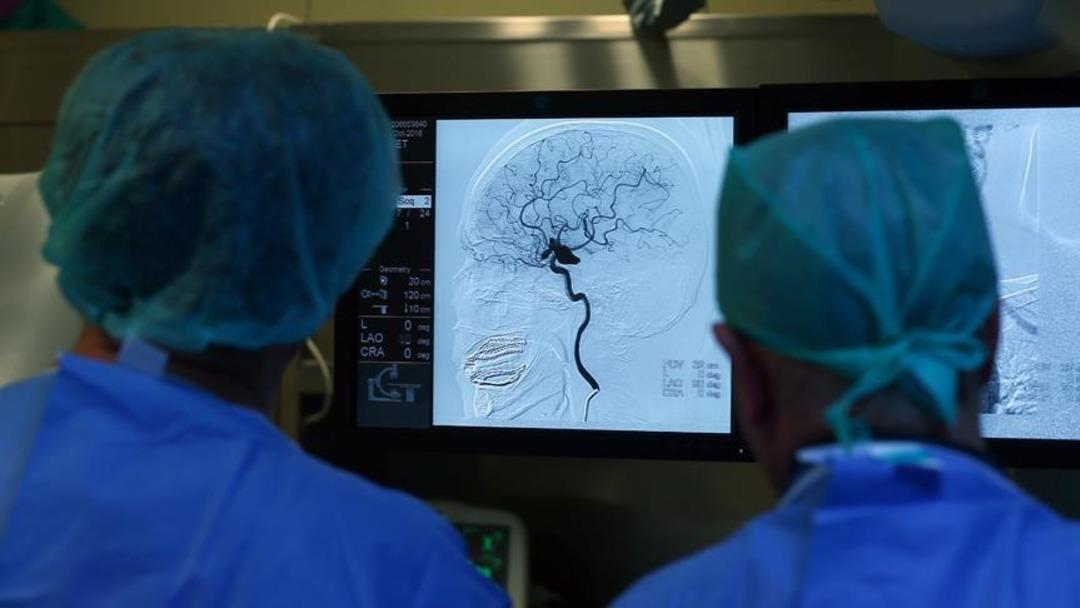It ranks third among causes of death: 1 person has a stroke every 4 minutes!

Stroke, which affects 17 million people worldwide annually and accounts for 6 million deaths, is the second-leading cause of death in Türkiye. According to data from the Turkish Statistical Institute (TÜİK), 150,000 people experience a stroke annually in Türkiye, with one person experiencing a stroke every four minutes. Brain and vascular diseases account for 6 percent of all deaths in Turkey, making stroke the third leading cause of death.

Interventional Neurologist Dr. Elif Sarıönder Gencer emphasized the vital importance of recognizing stroke symptoms in stroke treatment, stating, "If you experience symptoms such as asymmetry on one side of your face, sudden arm or leg weakness, difficulty speaking, sudden vision problems, loss of balance, or a sudden severe headache, you should immediately call 911. Interventions performed within the first 4.5 hours can significantly reduce disability and mortality rates. Therefore, the principle of 'time is brain' stands out as the most important principle in stroke treatment. Significant strides have been made in stroke treatment in Turkey in recent years. With the certification process launched in 2019, 57 comprehensive stroke centers and 51 primary stroke centers have been established; these centers cover approximately 85 percent of the population, facilitating access to stroke treatment nationwide."
Emphasizing the importance of early diagnosis, Specialist Dr. Gencer stated, "The Ministry of Health's efforts under the Turkey Cardiovascular Disease Prevention and Control Program aim to strengthen early diagnosis and follow-up in primary healthcare services by including family physicians in the process. Essential steps for preventing primary and secondary stroke include a balanced and healthy diet, regular physical activity, avoiding smoking and alcohol, monitoring blood pressure and diabetes, regular health check-ups, following up with your family physician, and participating in screening programs."

Gencer said, "Among cardiovascular diseases, atrial fibrillation (AF) and carotid artery stenosis are conditions that significantly increase the risk of stroke. Atrial fibrillation is a rhythm disorder that causes the heart to beat irregularly and increases the risk of stroke approximately fivefold. Irregular heart contractions can cause blood clots to form, which can travel to the brain and cause a stroke. AF, which occurs in 8-10% of individuals over the age of 65, can often be asymptomatic or present with symptoms such as palpitations, shortness of breath, and fatigue."
REGULAR CHECK IS A MUSTGencer stated that regular pulse checks and electrocardiogram (ECG) examinations are recommended for the early diagnosis of AF, adding, "After diagnosis, blood thinners are used to reduce the risk of stroke. Rhythm control medications, electrical cardioversion, or interventional methods such as catheter ablation are also among the treatment options. Carotid artery stenosis is a narrowing of the main arteries in the neck due to plaque accumulation and is responsible for 20-30 percent of ischemic strokes. Risk factors include high blood pressure, diabetes, smoking, high cholesterol, and advanced age. Carotid stenosis is usually asymptomatic, but it can manifest as a transient ischemic attack (TIA) or stroke. Imaging methods such as Doppler ultrasonography are used for early diagnosis. Treatment includes lifestyle changes, antiplatelet medications, and cholesterol-lowering medications, as well as interventional methods such as carotid endarterectomy (surgical plaque removal) or carotid stent placement in severe stenoses. These treatments can reduce the risk of stroke by up to 80 percent." may reduce rates,” he said.

Gencer emphasized that it's important to remember that stroke can occur at any age and at any time, saying, "Knowing the signs of stroke and acting quickly can save lives. If you or those around you notice symptoms such as sudden speech impairment, weakness in the face, arm, or leg, vision loss, dizziness, or a sudden and severe headache, call 112 immediately. Early intervention is the key to a healthy future." Source: İHA This content was published by Sedef Karatay .
mynet




